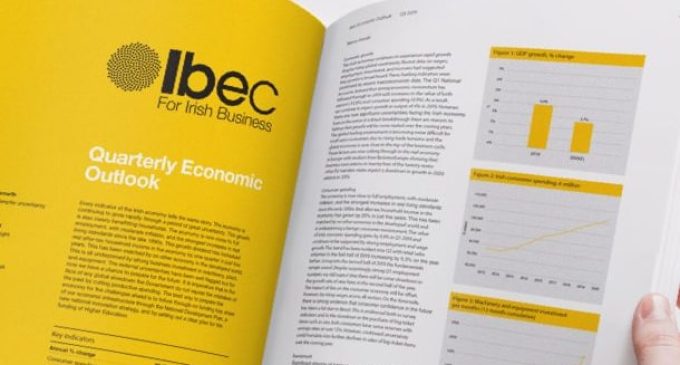Robust Irish economic performance despite twin challenges of inflation and higher interest rates

Ibec, the group that represents Irish business, has published its new Economic Outlook, which forecasts growth in GDP of 2% in 2024 and 3.4% in 2025. The Outlook says that higher growth in exports, investment and the overall economy is expected for this year and next, on the back of falling inflation, anticipated interest rate reductions and marginal improvements in the global economy.
Commenting on the report, Ibec Head of National Policy and Chief Economist, Gerard Brady, said: “Much of the underperformance in exports and capital investment last year was driven by once-off impacts caused by the timing of big investment decisions and reducing demand for Covid-related products in the BioPharma sector. Headline economic figures for last year belie a robust performance on the ground, with 90,000 additional jobs added and a domestic economy that compares favourably with much of Europe. For this year, we expect GDP growth of 2%”
“This will be driven by a marginally stronger performance in the global economy and an improvement in some sector and product specific sales which had cast a pall over overall exports in 2023. It remains the case, however, that intensified global competition in some sectors and relatively weak growth in key trading partners, particularly in the Eurozone, will mean more subdued export growth than had been the case for much of the past decade.”
“Falling inflation and anticipated interest rate cuts this year should provide a boost to the Irish economy. For consumer facing businesses, the fall off in inflation to 2.3% in 2024, combined with high employment and rising wages will mean a return to real income growth for households, even though prices facing consumers will remain higher than previous years due to higher global commodity costs. Whilst the domestic market remains in a much better position than in much of Europe, there are broader concerns about the strength of the global economy which will weigh on Irish growth in the coming years.”
“Looking at the global picture, a new era of increased State subsidising of industries and investment in new technologies is leading to a period of rapid and accelerating change, as governments compete for major projects. Falling levels of trade openness and rising geopolitical risk in global supply chains, energy, and commodity markets mean there will be a more frequent disruption of global supply chains and less integrated trade. For the Irish economy, this means there will need to be a renewed focus on cost competitiveness, skills, infrastructure and our capacity to innovate to safeguard our export-led growth model.”



























